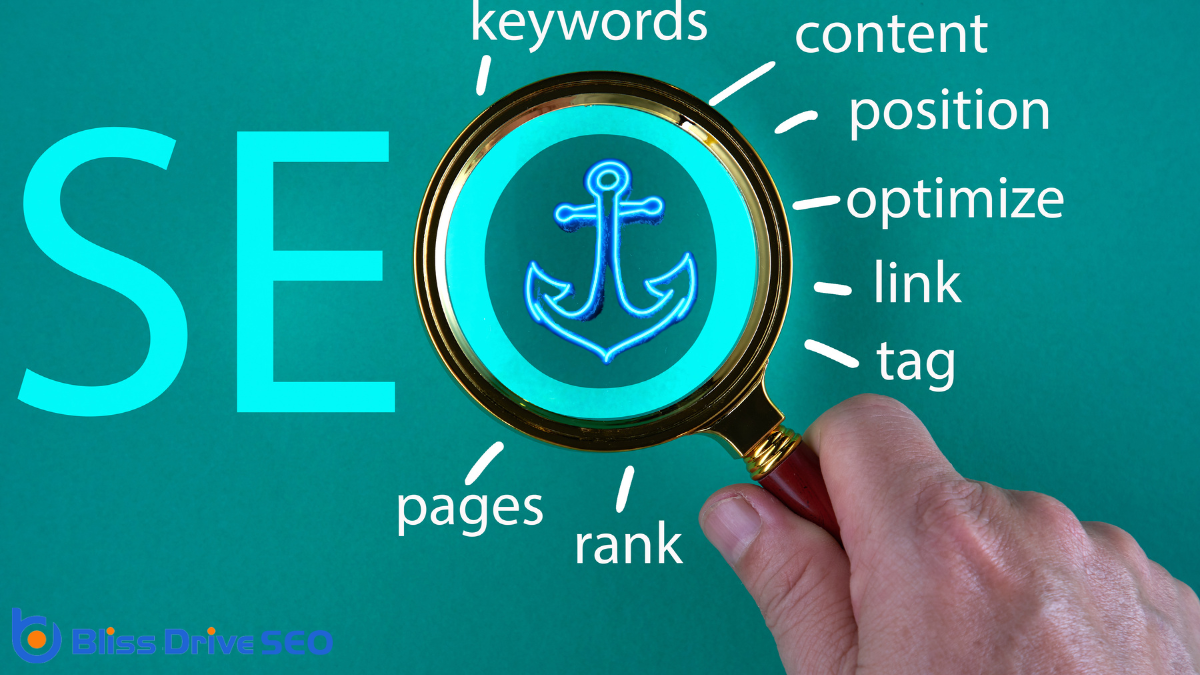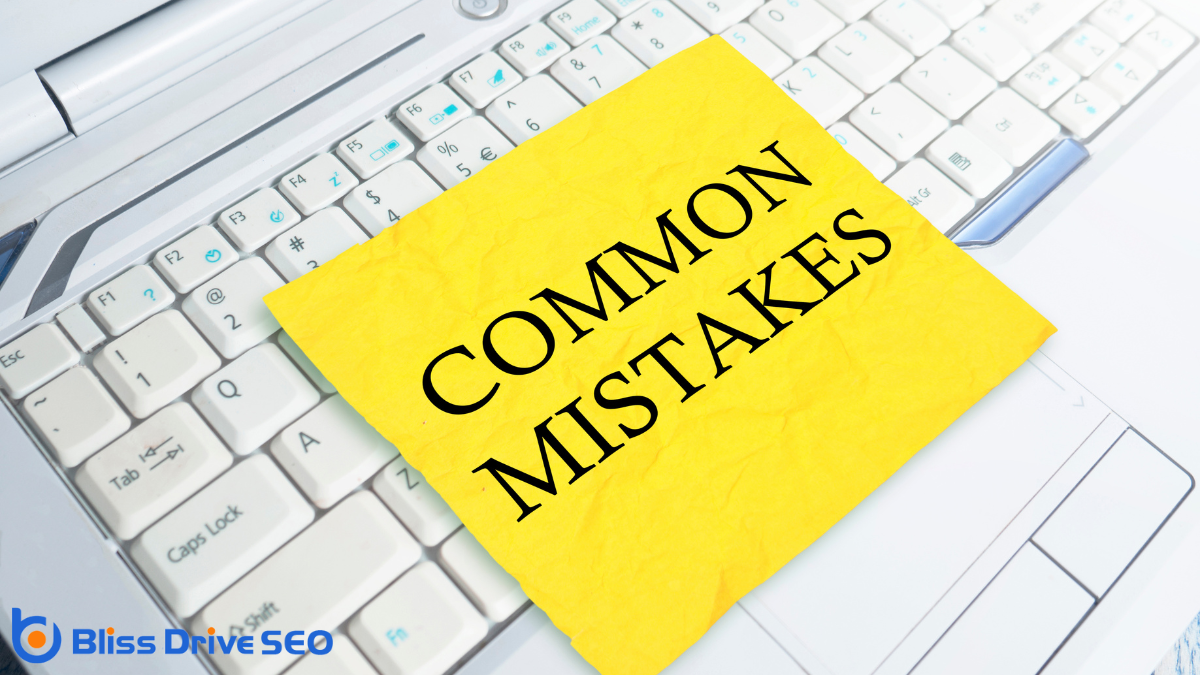Digital Marketing Services
Learn More About Us

You've probably come across clickable text in articles or blog posts—those are called anchor texts, and they play a pivotal role in SEO. But why exactly are they important, and how can they influence your site's visibility? Understanding anchor textThe clickable text in a hyperlink, important for SEO as it provides context for the linked page. isn't just about knowing what it is; it's about recognizing its impact on search engine rankingsThe position at which a website appears in the SERP. and user experience. Are you using the right types of anchor text to guide users and search engines effectively? Let's explore how you can optimize this small yet mighty element to enhance your website's performance and avoid common pitfalls.
When it comes to understanding the intricacies of SEO, anchor text plays a significant role. You might be wondering what anchor text is exactly. Simply put, it's the clickable text in a hyperlink that you often see highlighted in blue. When you click on it, it takes you to another webpage or a different part of the same page. Anchor text is more than just a clickable link; it's an essential element that informs both search engines and users about the content and context of the linked page.
To recognize anchor text, look for the words or phrases that appear distinctively, usually underlined and in a different color. You can think of it as a bridge connecting one piece of content to another. It guides users and search engines, helping them understand the relationship between pages.
Here's an example: in the sentence "Check out our guide on SEO strategies," the phrase "guide on SEO strategies" could be the anchor text linking to a detailed article. By choosing meaningful anchor text, you guarantee that the link's purpose is clear. This clarity helps you and others navigate the web more effectively.

In the field of SEO, the importance of anchor text can't be emphasized enough. When you use anchor text strategically, it helps search engines grasp the context and relevance of the linked content. This understanding improves your site's visibility in search results. By choosing the right words to link, you can guide both users and search engines to the most pertinent pages, enhancing the user experience and boosting your site's authority.
Anchor text serves several crucial functions in SEO:
Understanding the different types of anchor text can significantly enhance your SEO strategy. By recognizing each type, you'll gain better control over how search engines and users perceive your links. Let's explore the main types you'll encounter.
First, there's exact match anchor text. This is when the anchor text is precisely the keyword you're aiming to rank for. While powerful, use it sparingly to avoid penalties from search engines.
Next, there's partial match anchor text, where the anchor includes your target keyword along with other words. This type is safer and more natural, helping you keep relevance without over-optimizing.
Branded anchor text uses your brand name as the anchor. It's essential for building brand recognitionThe ability of consumers to identify a brand by its attributes, such as logo, color, or packaging. and trust.
Then, there's generic anchor text like "click here" or "read more." While it's easy to use, it lacks keyword relevance, so don't over-rely on it.
To effectively utilize anchor text in your SEO strategy, focus on diversity and relevance. It's important to mix different types of anchor text to create a natural and engaging user experience. By doing so, you help search engines understand the context and content of your linked pages better. Remember, anchor text shouldn't only appeal to algorithms but also serve the readers. Here are some best practices to guide you:

When optimizing anchor text, watch out for over-optimization, as it can leadA potential customer referred by an affiliate who has shown interest in the product or service but h... to penalties from search engines.
Avoid using anchor text that lacks contextual relevance, as it confuses readers and weakens your SEO efforts.
Also, steer clear of generic links like "click here," as they don't provide any valuable information to users or search engines.
Over-optimizing your anchor text is a common pitfall that can harm your site's SEO performance. You might think stuffing keywords into your anchor text will boost your rankings, but it can actually have the opposite effect. Search engines have become sophisticated and can easily identify when you're trying too hard to manipulate rankings. This excessive optimization can lead to penalties, which can heavily impact your site's visibility.
To avoid this mistake, keep the following in mind:
Contextual significance plays a pivotal role in the effectiveness of your anchor text strategy. When you disregard the context in which your anchor text appears, you risk confusing search engines and your audience. To put it simply, anchor text should fit naturally within the content. If you're linking to a page about gardening tips, make sure the surrounding text relates to gardening. Misalignment can lead to a poor user experience and may even harm your search rankings.
It's important to contemplate the relationship between the anchor text and the target page. A link should seamlessly blend into the surrounding content, enhancing the reader's understanding. If your anchor text appears forced or out of place, it can disrupt the flow, making your content less engaging and trustworthy. Search engines value relevance, so failing to align your anchor text with the context can weaken your SEO efforts.
One common mistake in SEO is relying too heavily on generic links. You might think that using phrases like "click here" or "read more" is harmless, but in reality, they offerThe specific product or service being promoted by affiliates. no context or value to search engines. Generic links fail to tell Google what the linked content is about, making it difficult for the search engine to understand the relevance of your page. This lack of specificity can negatively impact your site's visibility and ranking.
When crafting anchor text, you should aim for descriptive and relevant wording. Avoiding generic links is pivotal for several reasons:
Plunge into the world of anchor text in SEO, and you'll quickly see its profound impact on user experience. When you browse a webpage, the anchor text acts as a signpost, guiding you to relevant content. It helps you decide whether a link is worth clicking on. Clear, descriptive anchor text enhances your navigation, making your journey through a site smooth and intuitive.
Imagine clicking "here" versus "learn more about sustainable gardening." The latter tells you exactly what to expect, saving time and reducing frustration.
When you encounter well-crafted anchor text, your confidence in the site's reliability grows. You feel assured that the destination link matches your expectations, thereby fostering trust in the site's content.
On the flip side, misleading or generic anchor text can lead to confusion, causing you to second-guess your clicks. This can lead to a frustrating experience, driving you away from a site.
Ultimately, effective anchor text improves the overall user experience by providing clarity and direction. It not only serves SEO purposes but also caters to your need for efficient and enjoyable online navigation, making your web interactions more meaningful and less cumbersome.

To boost your SEO performance, using top anchor text tools can help you analyze link relevance effectively. These tools provide insights into how your anchor text is impacting your search rankings. By understanding and optimizing this aspect, you'll enhance your site's visibility and user engagement.
When delving into the world of SEO, understanding and analyzing anchor text is crucial for optimizing your site's performance. You need the right tools to gain insights into how anchor text impacts your site's search rankings. Fortunately, several excellent tools make this process easier and more efficient.
In the field of SEO, a thorough analysis of link relevance is vital for enhancing your site's authority and visibility. Anchor text plays a significant role in determining how search engines perceive the relevance of your links. By understanding the context and relationship between the anchor text and the linked content, you can guarantee that your site ranks higher in search results.
To analyze link relevance effectively, you'll need to use specialized tools designed to evaluate anchor text. These tools help you examine the quality and context of your backlinksLinks from other websites pointing to your website, crucial for SEO., allowing you to identify patterns and potential enhancements.
For example, tools like Ahrefs and SEMrush provide insights into anchor text distribution, helping you see if your links are varied or overly optimized. Look for natural, diverse anchor text that aligns with the content it's linking to.
Additionally, these tools can help you spot any irrelevant or spammy links that could damage your SEO efforts. By filtering out low-quality links, you can maintain a clean and authoritative link profile. Regularly analyzing link relevance guarantees that your SEO strategy remains effective and aligned with best practices.
Boosting your SEO performance depends on effectively utilizing tools that analyze anchor text. These tools offer insights into the quality and relevance of your backlinks, which play an essential role in your website's ranking. By understanding how anchor text operates, you can make informed decisions that improve your SEO strategy. You'll discover patterns, identify overly optimized terms, and guarantee your links appear natural to search engines.
Here are some tools you can use to examine anchor text:
In understanding anchor text, you've discovered its pivotal role in SEO. By using descriptive and relevant anchor text, you guide users effectively and boost your site's visibility to search engines. Remember, selecting the right type of anchor text and adhering to best practices can enhance user experience and trust. Avoid common pitfalls, and consider leveraging tools to analyze your anchor text strategy. With these insights, you're well-equipped to optimize your site's performance and online presence.
